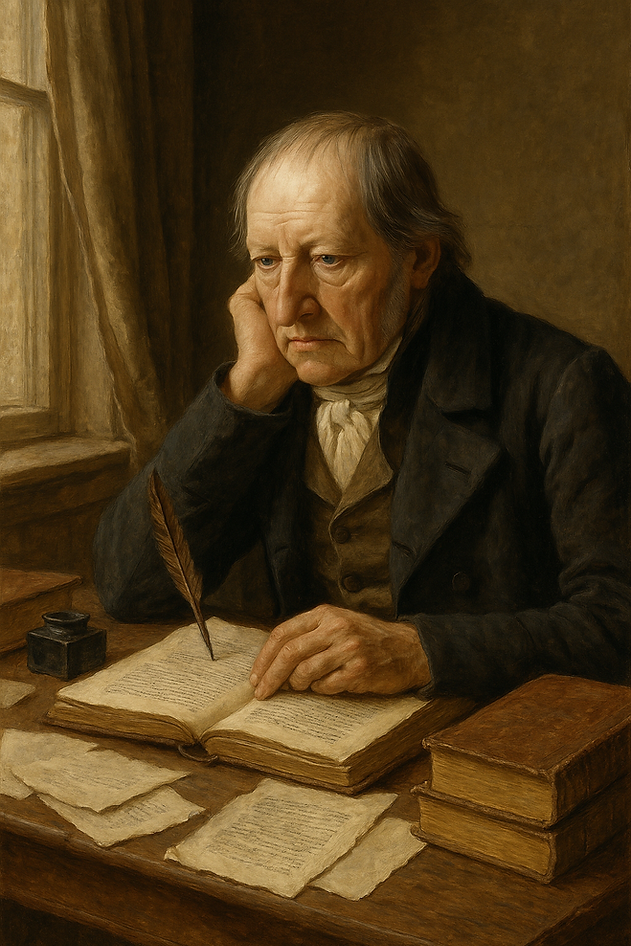
Experience the world of philosophy

Georg Wilhelm Friedrich Hegel (1770–1831)
Georg Wilhelm Friedrich Hegel (1770–1831)
was a German philosopher and one of the most influential figures in Western philosophy. He is best known for his work in German idealism, particularly his development of dialectical thinking.
🔹 Key Ideas:
-
Dialectic: History and ideas progress through a three-step process:
Thesis → Antithesis → Synthesis
This method explains how contradictions are resolved in the evolution of thought and reality.
-
Absolute Spirit: Hegel believed that all reality is a manifestation of a single, rational process he called the Absolute, which becomes self-aware through human history, art, religion, and philosophy.
-
Phenomenology of Spirit (1807): A major work that explores the development of consciousness from sense-experience to absolute knowledge.
-
Philosophy of History: He argued that history is rational and follows a logical development where freedom expands over time.
🔹 Influence:
Hegel’s ideas laid the foundation for Marxism, existentialism, critical theory, and modern political philosophy. Thinkers such as Karl Marx, Kierkegaard, and Adorno were deeply shaped by his thought—either by building on it or reacting against it.
🔹
Top Quotes by Georg Wilhelm Friedrich Hegel
-
“The real is rational and the rational is real.”
– Reality and reason are two sides of the same coin in Hegel’s system.
-
“We learn from history that we do not learn from history.”
– A powerful critique of humanity’s tendency to repeat mistakes.
-
“Only one man ever understood me, and he didn’t understand me.”
– A self-aware remark on the complexity of his philosophy.
-
“Freedom is the truth of Spirit.”
– Hegel saw human freedom as the ultimate goal of history and spirit.
-
“To be independent of public opinion is the first formal condition of achieving anything great.”
– A call for courage in thought and action.
-
“Genuine tragedies in the world are not conflicts between right and wrong. They are conflicts between two rights.”
– Hegel’s insight into moral complexity.
-
“An idea is always a generalization, and generalization is a property of thinking. To generalize means to think.”
– Highlighting the power of abstract reasoning.

